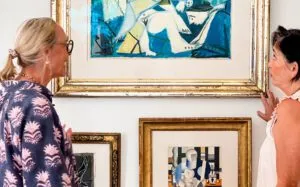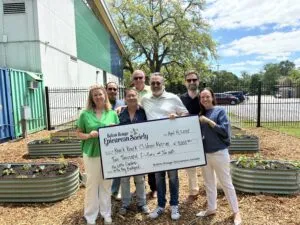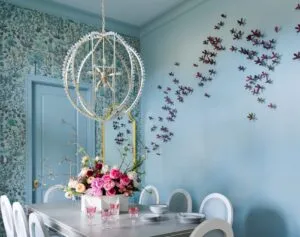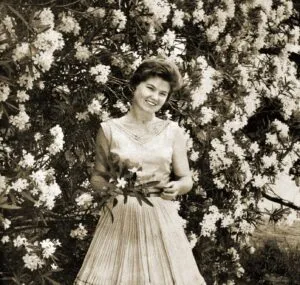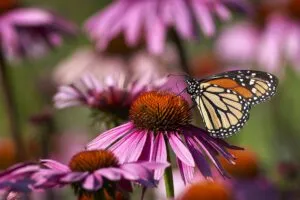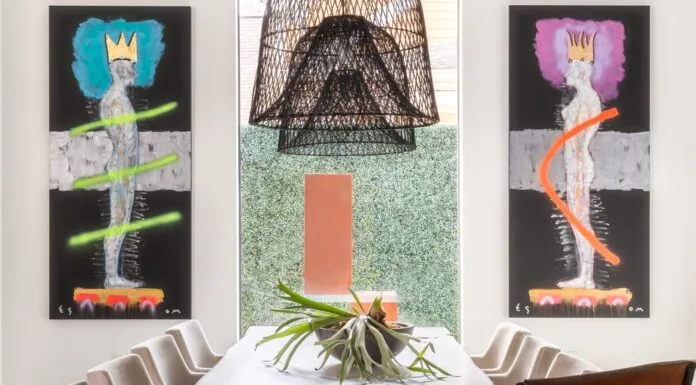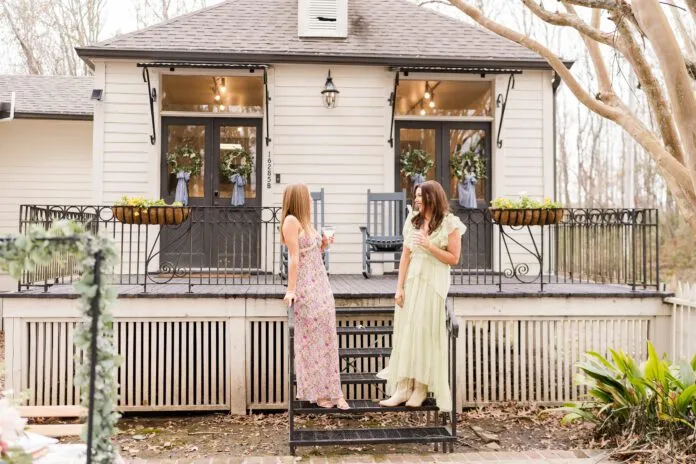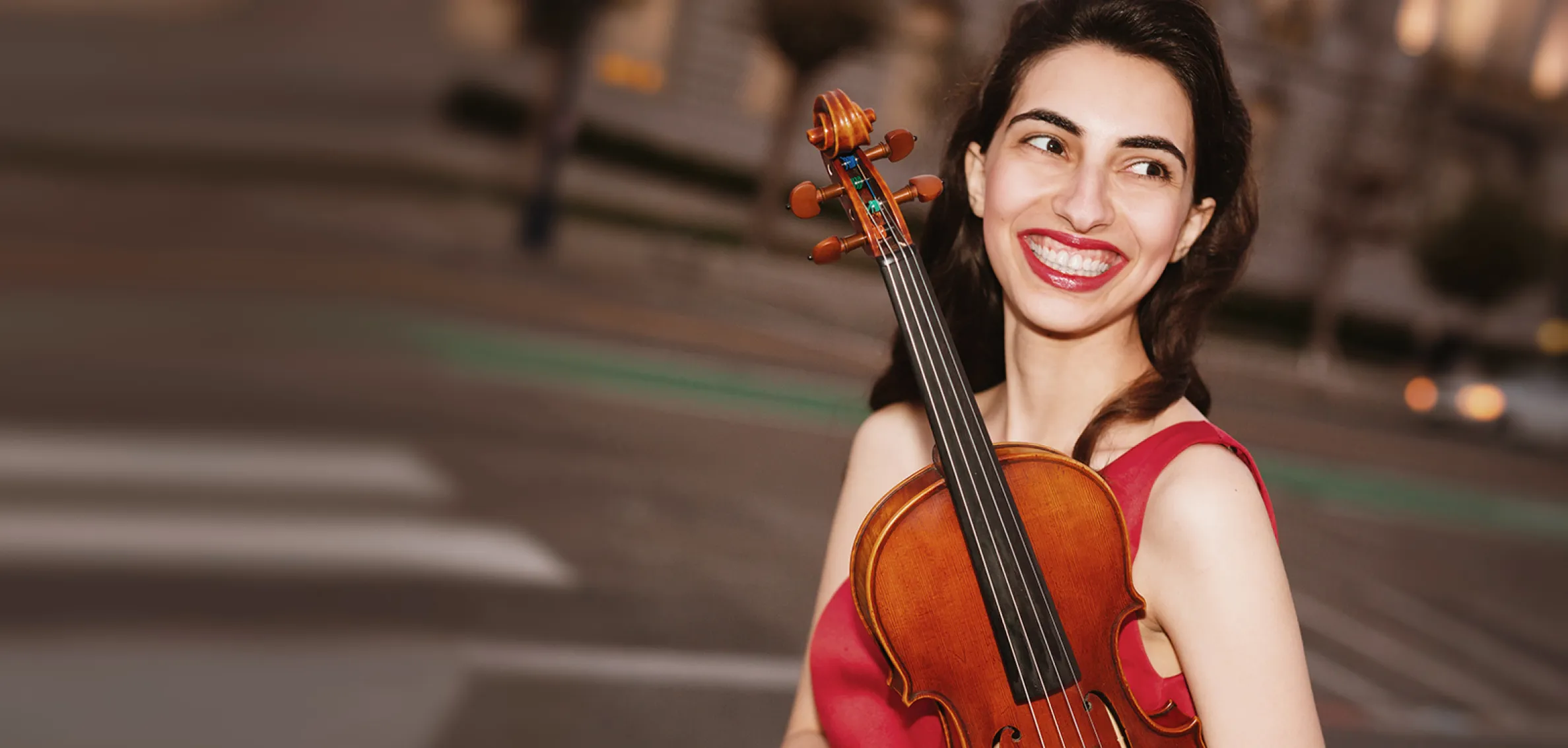
Iranian-born violinist and arts educator Sinella Aghasi cultivates cultural harmony
One of violinist Sinella Aghasi’s most memorable performances took place in her childhood, when she traveled from her native Iran to the nation of Georgia to perform with a choir for fellow Assyrians like herself. Although audience members spoke the same language as Aghasi and the other musicians, the Georgians’ accents made communication difficult, she says. When the music started, however, and the choir began singing familiar folk songs, all the cultural differences vanished.
“It was so priceless, the power of music,” Aghasi remembers.
This power of music has helped propel Aghasi, now 29, from the Middle East to Baton Rouge, where she received her doctoral degree in musical arts and violin performance from LSU. Since her arrival in Louisiana in 2016, Aghasi has worked with the nonprofit organizations Opéra Louisiane and Kids’ Orchestra promoting music and arts education.
Aghasi currently works as director of education at the Arts Council of Greater Baton Rouge, an organization fostering the region’s artistic creativity through advocacy, resources and education. The nonprofit just moved into its new home in the Cary Saurage Community Arts Center, where Aghasi says she is excited to see what next year will look like in terms of supporting the arts in 11 parishes surrounding Baton Rouge. The COVID-19 pandemic has made the future of arts programming uncertain, especially in Louisiana, where Aghasi says there is already a lack of arts education.
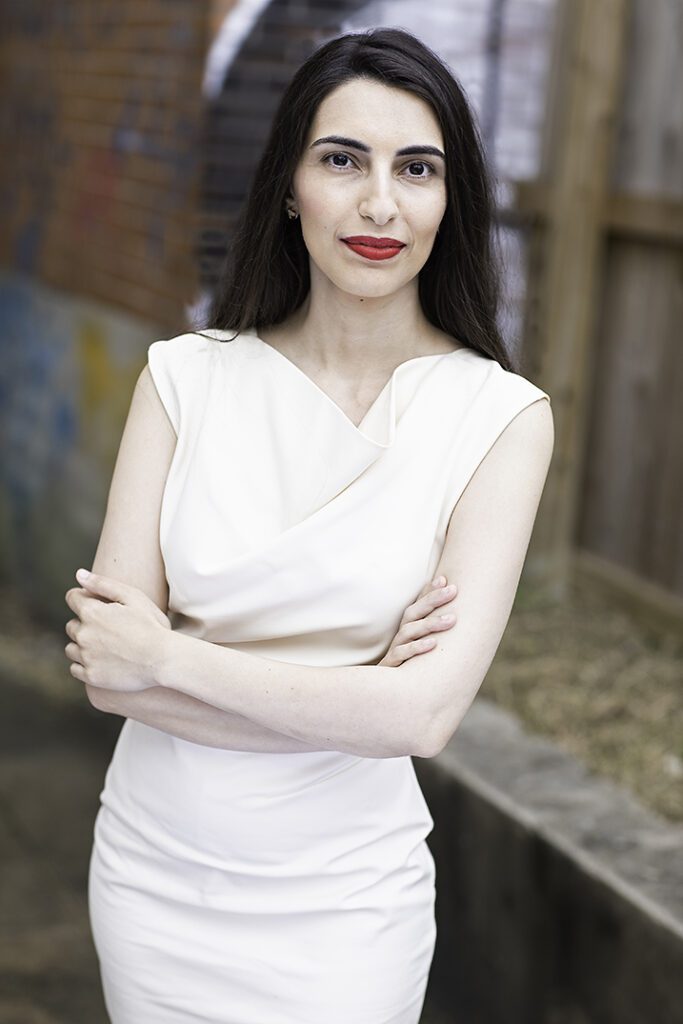
Aghasi has strong feelings on the importance of the arts. She says she believes arts education should be accessible to everyone because of the identity the arts bring to communities. The arts, she attests, also bring different people together by opening doors to difficult political or social conversations. And they encourage teamwork and help build important relationships. Most recently, during the COVID-19 pandemic, artists, musicians and performers have served on the front lines to help others escape the loneliness of lockdown, she points out.
“The arts provide that safe place for both artists and the community to observe and see the beauty in everyday life through different lenses,” Aghasi says.
Music was so important to Aghasi that her parents moved her halfway around the world so that she could excel in her studies and have a future in the arts. Aghasi was born in Tehran, Iran, into a family of Christian Assyrians, a religious minority group in the predominantly Islamic nation. Aghasi showed a gift early on and was encouraged by her parents to study music. At age 11, she was accepted into the Music School of Tehran, where she studied violin and classical voice and graduated in 2009 with a high school diploma.
But obstacles prevented Aghasi from moving upward in her career, she says. Women are forbidden from singing in public in Iran and musical concerts were discouraged, she says. Although there were talented music teachers who trained Aghasi, the Iranian government gave no support to the arts, she says. “When I finished my high school, there were not enough opportunities for me to succeed as my parents at the time viewed it,” Aghasi says.
Additionally, Christian churches were closing and Aghasi’s family realized it was time to leave Iran. “It wasn’t a great environment to live in, especially as Christians,” Aghasi says. By 2010, Aghasi and her family had joined other family members in Turlock, California, as Christian refugees.
There are parallels to be drawn with Aghasi’s own immigration journey and the current events unfolding in Afghanistan, which Aghasi calls heartbreaking. “As an immigrant, I know the difficulties of leaving so much behind in the home country and starting all over again and paying the price of being considered a foreigner for the rest of my life,” Aghasi says. “It is unfortunate that under Islamic regimes, there are so many restrictions that take the basic human rights away from all the residents, especially from women and the religious minorities. While the situation in Afghanistan is far worse than Iran, due to political sanctions imposed on Iran, many people in my country are dying because they can’t get medicine and vaccinations from other countries. People are the innocent and silent majority that are always under oppression because of the policies and strategies that are put in place by internal and external politicians.”
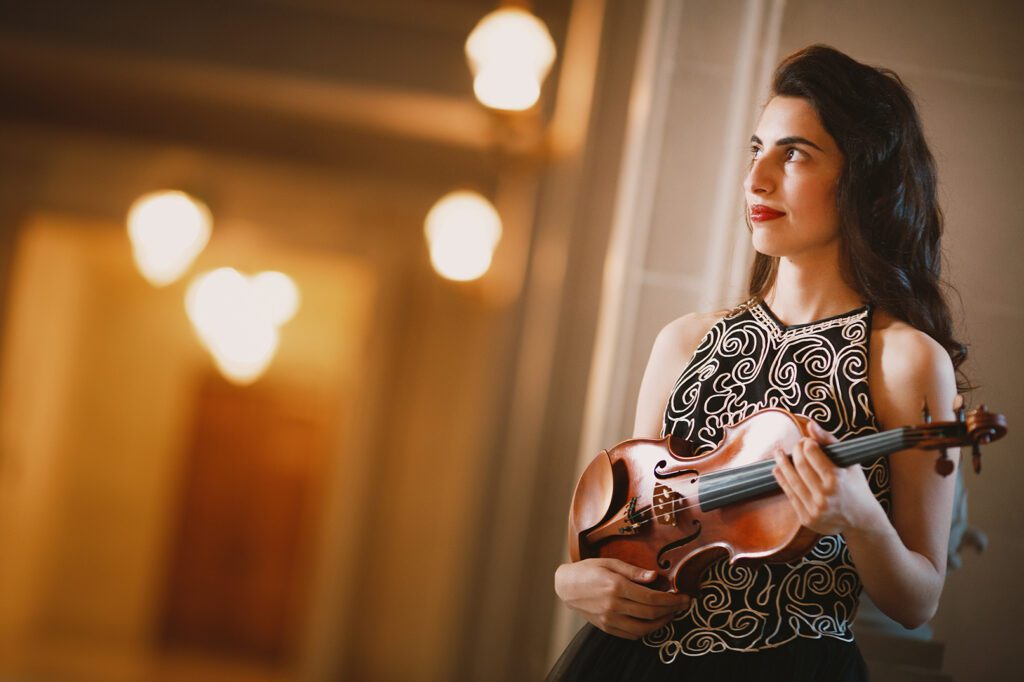
After immigrating to the United States, Aghasi enrolled in California State University Stanislaus and graduated in 2014 with a bachelor’s degree in instrumental music education and violin performance. She then earned her master’s degree in violin performance at San Francisco State University, where she taught music to young students through the San Francisco Symphony and the Archdiocese of San Francisco. Moving to the exciting, multicultural city of San Francisco reminded Aghasi of her childhood in the major metropolis of Tehran. “In many ways, I felt closer to home,” she says.
Aghasi hoped to become a college music professor and soon realized she would need a doctoral degree. Her mentor, John Craton, a composer and music educator in Indiana, recommended she study under LSU professor Lin He. Without Aghasi knowing, Craton then sent He a recording of Aghasi playing the violin. “We got connected in an interesting and very unplanned way that worked out very well,” Aghasi says.
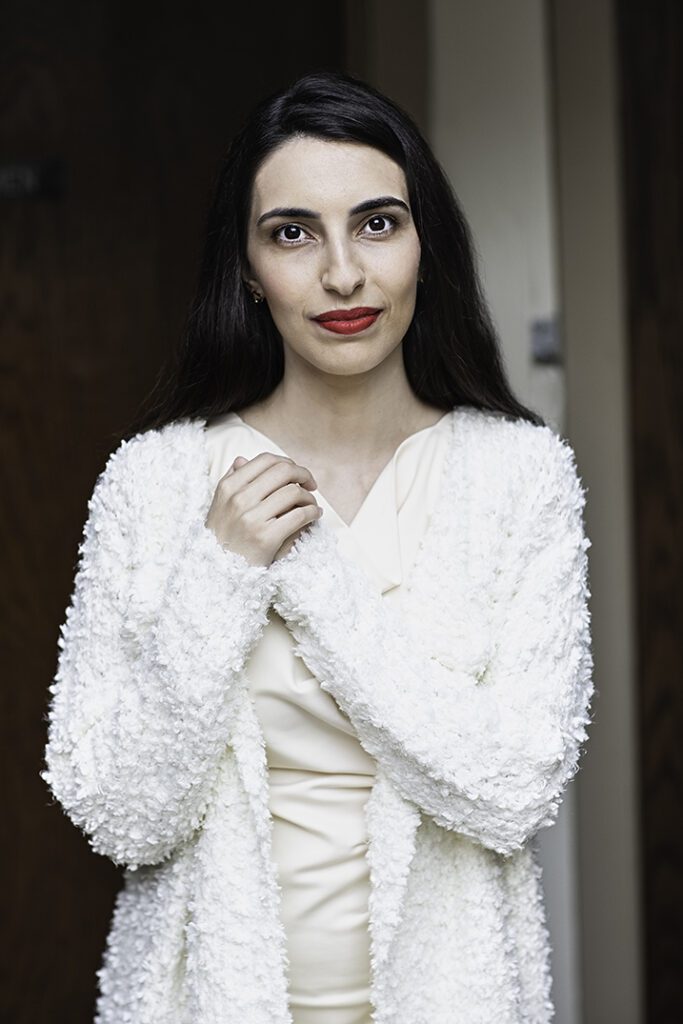
And so Aghasi came to LSU and completed her doctorate in musical arts and violin performance in 2019. But it was her study concentration of arts administration and nonprofit organization management that interested her the most. Aghasi developed a new passion by learning to combine her background in education with fundraising, development and marketing—basically everything she would need to know to successfully manage a nonprofit. Although she had already worked with nonprofits like Kids’ Orchestra, this course of study allowed her to focus on empowering artists and audiences behind the scenes and providing quality education and performances.
Aghasi accepted the role of director of education at the Arts Council just a few months ago. At her heart, she is still an educator who loves to see students step outside their comfort zone and do something they never thought they could do.
“That’s why I believe in the power of music and power of the arts,” she says. “Nothing makes me more happy than to see that transformation.”





